Deceptive Equality: Deconstructing the Equal Opportunities Commission
Total Views |
August 08, 2009
Released by: Sh. Karia Munda, Dy. Speaker, Lok Sabha,
Speakers: Sh. Arif Mohd. Khan, Ex., M.P., Ex. M.P. Sh. Rajinder Puri, Sr. Journalist
Dr. Bajrang Lal Gupta, Economist and Chairman, IPF
India Policy Foundation’s Monograph, ‘Deceptive Equality: Deconstructing the Equal Opportunities Commission’, authored by Prof. Rakesh Sinha, was launched by the Deputy Speaker of the Lok Sabha, Karia Munda, in front of a large gathering of academicians, students, journalists and interested members of the general public at the Constitutional Club, New Delhi. Some of the prominent personalities in the audience were Giriraj Kishore, Devendra Swarup, Ram Kripal Singh, Smt Mridula Sinha, Rampal, former Chairman of the Commission for Scheduled Castes and Tribes, Vijay Sonkar Shastri, Shyam Jaju, RK Ohri, Shyam Khosla and Prof. Nagendra Nath Sharma.
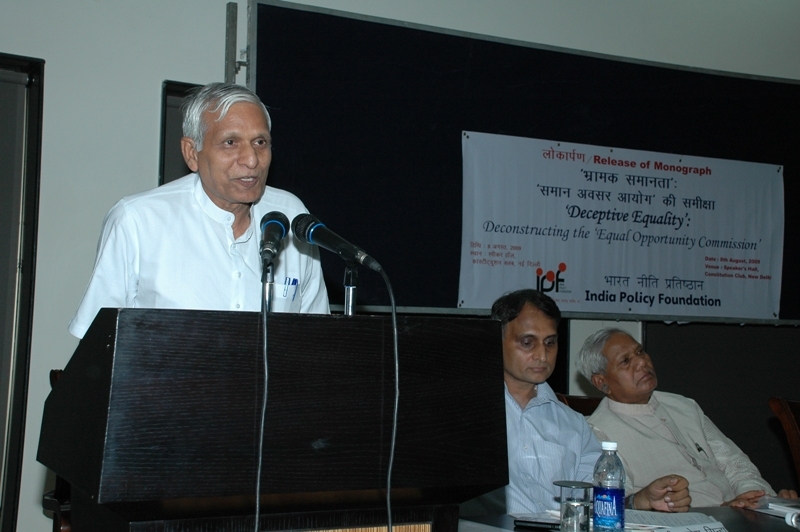
The book is a critical and timely analysis of the proposed Equal Opportunities Commission that the Government of India intends to set up. In this work, Prof Sinha has also included a detailed analysis of the current discourse on equality and the institutions for the promotion of equality.
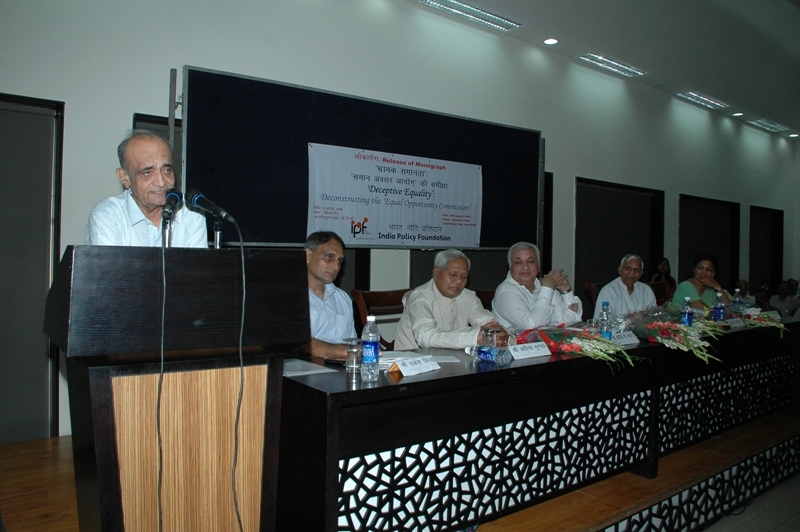
Speaking about his book, Prof. Sinha said that the Equal Opportunities Commission proposed by the Minority Affairs Ministry of the Government of India is merely a device to introduce reservations for certain religious communities by the back door. The ‘equality’ in the commission’s name is only a ruse. Just as ‘secularism’ in this country has been intentionally misinterpreted and misused as ‘minoritism ’, similarly ‘equality’ is being interpreted with the same pernicious motive. Prof. Sinha added that not every victim of discrimination in education and work can approach this commisison ; even traditionally discriminated communities like Scheduled Castes and Tribes, women and disabled will find the doors of the commission closed to them. Only the members of one particular religious community can approach the commission with their complaints. He further said that the Sachar Committee could not come up with any proof whatsoever of institutionalised discrimination against Muslims and the committee had recommended the setting up of the Equal Opportunities Commission on the basis of mere assumptions. He raised a very pertinent question: should policies be framed on the basis of mere assumptions?
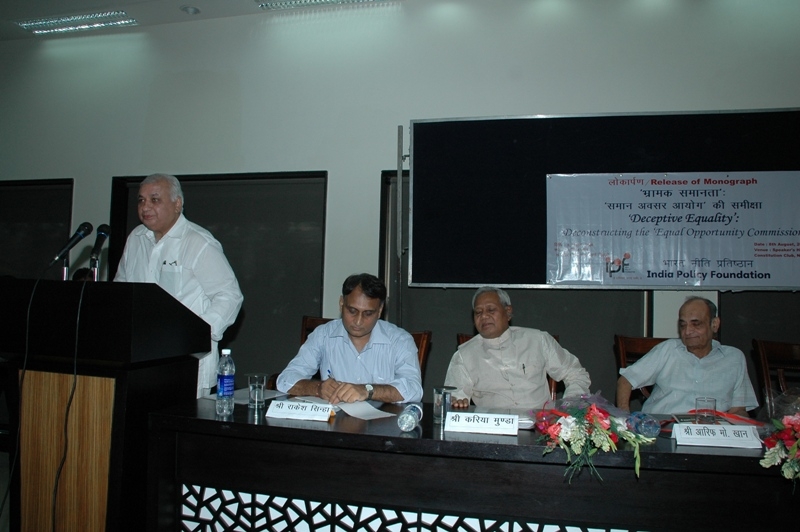
As Prof. Sinha shows clearly in his book, the Sachar Committee recommendations are strikingly similar to those of the Muslim League-sponsored Pirpur Committee report of 1938, which was an important contributor to the tragedy of Partition. He cogently argues that the formation of the EOC would ultimately lead to a return to the days of the Two-Nation theory and could end up being a case of history repeating itself.
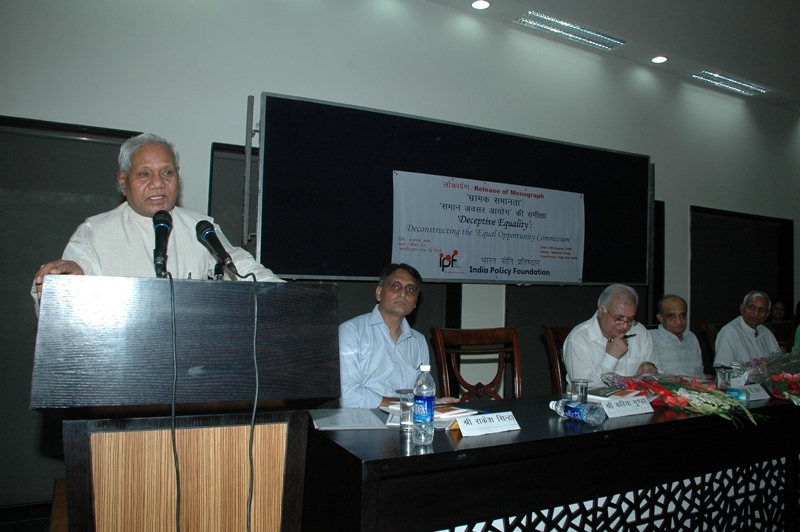
Launching the book, Karia Munda said that if there is lack of will on the part of the government, no commission will be of any use. He stressed that provisions in the Constitution are sufficient to bring equality in the society. Creation of too many bodies from a narrow viewpoint makes the goal of equality in society all the more difficult to attain.
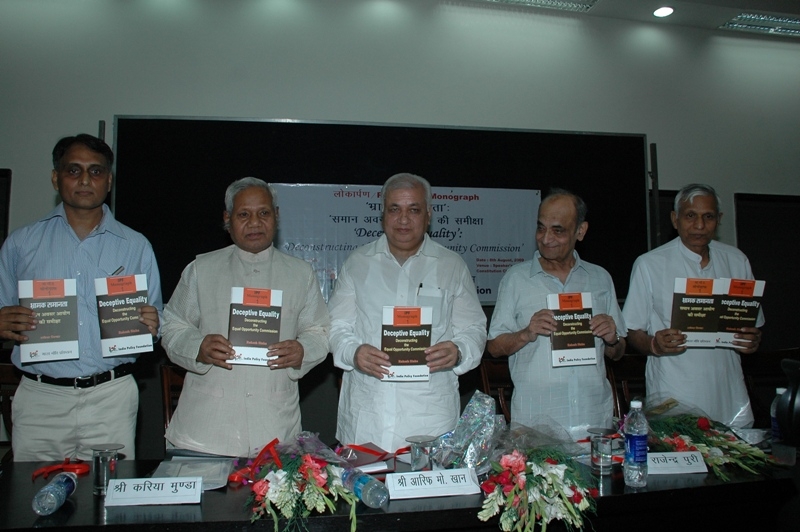
Arif Mohammad Khan began his speech with his reminiscence of an interview of the then RSS Sarsanghchalak , the late Madhav Sadashiv Golwalkar (Shri Guruji) that was published in Organiser in 1972. He said that Guruji had said that there existed two viewpoints with respect to Muslims. First, of those who appease the Muslims for their vote-bank politics and second, of those who want to decimate the Muslims. Both these two groups look at the Muslim as someone different from themselves. He said that there could not be a better interpretation than this. According to Khan, the Equal Opportunities Commission will remain a danger to the nation as long as every citizen of this country is not brought under the purview of this Commission. Group identification and indicating certain groups as backward is an attempt against national integration.
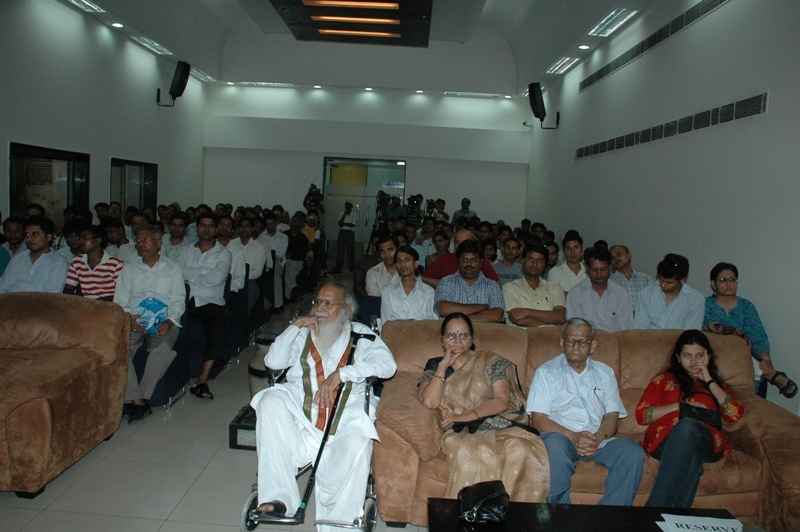
Dr Bajrang Lal Gupta termed the proposed Equal Opportunities Commission as a threat to both secularism and national integration. He said that the Commission would be under the aegis of the Minorities Affairs Ministry. The Sachar Committee had declared the Muslims as a social and economic group; hence a new way is being sought to provide them with reservations. According to Dr. Gupta, a large section of intellectuals and politicians seek to impose Western ideas and thoughts in the same form on the Indian nation. If a square peg is forced into a round hole, it is likely to produce a fissure. Rajinder Puri questioned the entire idea of reservation, calling it a negative measure. He said that only the influential sections of the backward classes will benefit from reservation. The session was conducted by Prof. Sheela Ray of Rajasthan University and the vote of thanks was proposed by Priyadarshi Dutta .